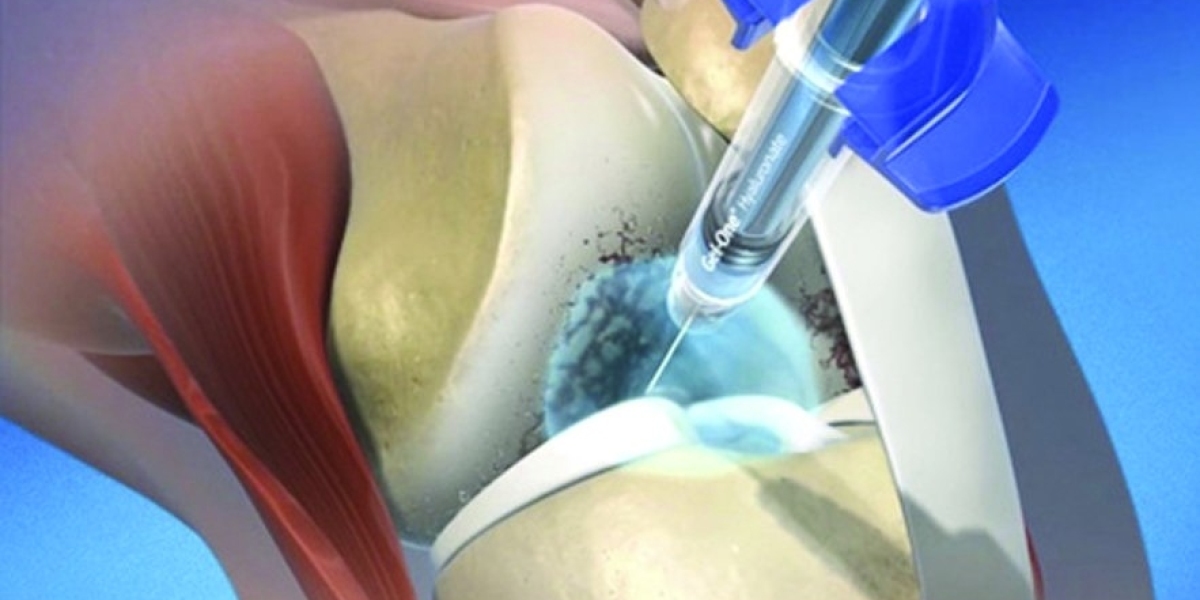Viscosupplementation refers to a treatment method for osteoarthritis that involves injecting a gel-like substance called hyaluronic acid (HA) into the knee joints. HA is a natural substance found in the fluid that lubricates and cushions the joints. With osteoarthritis, the amount of HA in the joint decreases, leading to pain and stiffness. This aims to restore the cushions needed to improve joint lubrication and mobility by replenishing the depleted HA levels.
How Does it Work?
HA acts as a lubricant and shock absorber in the joint. During osteoarthritis, the body's natural production of HA decreases. This breakdown of HA allows bones to rub together, causing pain, swelling, and stiffness. By injecting HA into the joint, this therapy aims to supplement this loss and lubricate the joint, easing pain and improving mobility. The gel-like substance acts as a lubricant and spacer between the bones. This restores the protective viscoelastic function of synovial fluid, cushioning the bones and distributing weight forces smoothly across the joint.
Does It Provide Long-Lasting Relief?
Viscosupplementation does not provide a cure for osteoarthritis but offers pain relief that can last for several months after treatment. A course of treatment usually involves injecting HA into the affected knee joints once a week for 3 to 5 weeks. The duration of relief varies by individual but effects typically persist for 4 to 6 months after the final injection. Repeated courses may be administered if symptoms flare up again. While not a cure, it can deliver prolonged pain relief without the risks of surgery for properly selected patients.
Benefits of the Supplementation
- Reduces osteoarthritis knee pain and improves joint mobility. Multiple clinical studies have shown viscosupplementation offering significant reduction in knee pain.
- Delays need for knee replacement surgery. By easing symptoms, it delays when more invasive surgical options may become necessary.
- Non-surgical treatment option. It provides relief without requiring knee surgery, making it suitable for those not ready for or wanting to avoid surgery.
- Increased joint lubrication. Replenishing HA restores joint protective lubrication lost due to osteoarthritis changes.
- Improved physical function. Pain relief enables better mobility and performance of daily activities.
- Relatively quick recovery. Patients can walk normally soon after treatment without extensive rehab like post-surgery.
Any Risks Involved in the Process
Like any injection or medical procedure, viscosupplementation does carry some risks, though serious complications are rare. Potential risks include:
- Pain or swelling at the injection site. This is a common short-term side effect experienced by up to half of patients.
- Allergic reaction. An allergic response to HA is uncommon but possible in sensitized individuals.
- Infection. A small risk of joint infection exists from any injection but precautions minimize this risk.
- Lack of efficacy. While proven effective for many, some patients may not experience adequate relief from a course of treatment.
Potential Candidates for the Supplementation
The best candidates tend to be patients experiencing moderate to severe chronic knee osteoarthritis pain unresponsive to other conservative therapies who:
- Are not too overweight to put excess pressure on the joint
- Do not have other conditions limiting mobility
- Are still active but pain significantly impedes activities of daily living
- Have intact knee cartilage and osteoarthritis that has not severely damaged the joint
- Have realistic expectations of symptom improvement rather than cure
In conclusion, viscosupplementation offers an injection treatment approach that can significantly reduce osteoarthritis pain and improve mobility without surgery. When performed by an experienced doctor, it provides a well-tolerated treatment alternative for properly selected candidates seeking non-surgical osteoarthritis relief.
Anushka Jadhav
35 Blog posts









